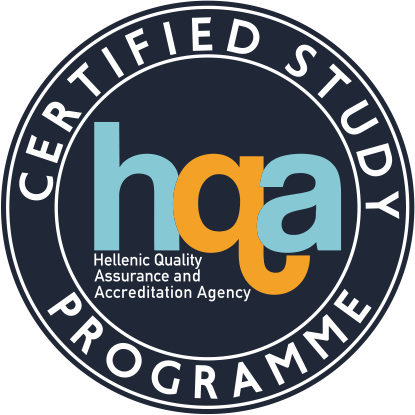Sustainable Tourism: Environment, Culture, Society
Undergraduate level | 2nd semester | Compulsory Unit | ΓΕ3100
Credit Units ECTS: 5
Teaching Hours (Weekly): 3
Course Type: General Knowledge
Prequisites: --
Teaching and Examination Language: Greek
For Erasmus students study course and exams are offered in English.

Course Material
1. Tourism Development and Sustainable Tourism. 2. Contemporary patterns of development and business entrepreneurship in Tourism. 3. Planning as inseparable element of Sustainable Tourism and management mode of cultural resources. 4. Environmental resources as a field of development and business activities in Sustainable Tourism. 5. The social and economic dimension and significance of Sustainable Tourism. 6. Special and Alternative Forms of Tourism: activities, development, management. 7. Special issues and examples and case studies of Sustainable Tourism development and management.
Learning Outcomes
The aim of the results is the study of the development and function of Sustainable Tourism and its relation with Culture, Environment and Society internationally and in Greece. In this framework we will investigate the interdisciplinary role of Tourism as a multifunctional sector of the contemporary social and economic development. After the successful completion of the course the student will be able:
- To comprehend the legislative, economic and developmental importance of Sustainable Tourism.
- To know the basic notions and definitions relevant with Sustainable Tourism but also relevant with the Cultural, Environmental and Social Resources which are linked with its development.
- To use their knowledge on the realization and management of developmental and business actions related to sustainable tourism.
- To become familiar with the special characteristics and peculiarities of Tourism Development in Greece.
- To know the political dimension of the function of Sustainable Tourism.
General Skills
After the successful completion of the course the student will have obtain a broader framework of abilities and knowledge which will give him/her a competitive advantage regarding its occupation in Tourism Enterprises, Tourism Local Governments or tourism departments on the broader Tourism Public Sector.
Learning and Teaching Techniques - Evaluation
Teaching Methods: Face to face
Use of ICT: Presentations using power point, making use of e-class, short videos to develop dialogue.
Course Organization:
| Activity | Semester Work Load |
|---|---|
| Lectures | 39 |
| Case studies | 16 |
| Studying | 70 |
| Total | 125 |
Assessment Methods:
- Language of evaluation: Greek
- Final Exams (60%)
Suggested literature
Course textbooks:
(in Greek)
- Kokkosis, Ch., Tsartas, P., (2001) Sustainable tourism development and the environment, Kritiki Publications
- Kokkosis H., Tsartas, P., Griba E., (2010), Special and Alternative Forms of Tourism: Demand and Supple of new products of Tourism, Kritiki
- Tsartas P., Lytras P., (ed), (2017) Tourism, Tourism Development: Contributions of Greek Scientists, Papazissis
Additional literature:
- Sarantakou, E. (2010). Mature tourist destinations. Evolution and possibilities to transfer to a sustainable model of summer-cultural tourism: The Greek case (PhD Thesis).
- Tsartas P., Sarantakou E., Kontis I. Alexios-Patapios, 2016. “Tourism Development Models in Greece: Trends and Challenges in an effort to change the paradigm”, in: Rontos, K., José António Filipe, Tsartas, P., (eds), 2016. Modeling and New Trends in Tourism: A Contribution to Social and Economic Development, Nova Publishers, USA.
- Tsartas, P., Papatheodorou, A., and Vasileiou, M. (2014) Tourism Development and Policy in Greece. In Costa, C., Panyik, E. and Buhalis, D. European Tourism Planning and Organisation Systems: National Case Studies (Volume III), Clevedon: Channel View Publications.



